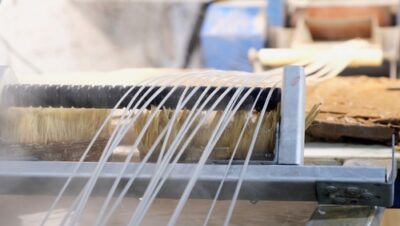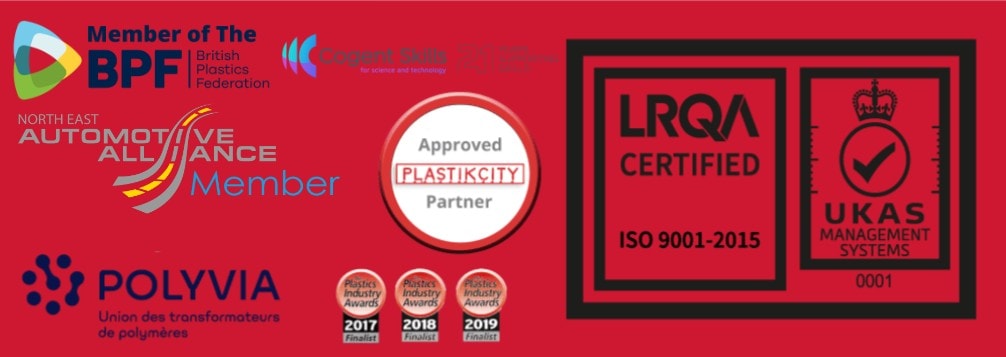Article Contents
Introduction
In the ever-expanding universe of plastic materials, one process stands as the foundation for their incredible versatility: polymer compounding. This specialised technique is how manufacturers transform raw plastics into custom-tailored materials that meet the precise demands of countless industries.
Understanding the Fundamentals
- What is polymer compounding? Polymer compounding involves blending a base polymer resin (think of it as your basic flour) with carefully selected additives to achieve a desired set of characteristics. These additives can range from colourants to reinforcing fibres, dramatically altering the plastic’s properties.
- What are polymer compounds? Polymer compounds are the final products of the compounding process. Customisation gives plastic materials specific strengths, flexibility, colours, heat resistance, and numerous other properties ideal for particular applications.
- What does a plastic compounder do? A plastic compounder is like a materials scientist specialising in plastics. They have deep expertise in polymer resins, additives, and manufacturing processes. Compounders design and produce plastic compounds that meet the specific performance requirements of a product or industry.
The Art and Science of Compounding
The Building Blocks: The journey begins with a polymer resin, such as polyethene (PE), polypropylene (PP), polyvinyl chloride (PVC), or polystyrene (PS). Each resin has its inherent qualities. Additionally, compounding applies to multiple other resins such as ABS (Acrylonitrile butadiene styrene), ASA (Acrylonitrile styrene acrylate), polycarbonates and other materials such as MABS (Methylmethacrylate acrylonitrile butadiene styrene) and Polyamides.
Tailoring Properties with Additives: This is where the magic happens! The compounder selects additives that will transform the plastic, including:
- Colourants: Pigments and dyes to create vivid colours.
- Fillers: Materials to add bulk, reduce costs, or modify properties.
- Reinforcements: Fibers for dramatically increased strength and stiffness.
- Impact Modifiers: To improve resistance to shattering.
- Flame Retardants: For enhanced fire safety.
- Antioxidants and UV Stabilisers: These are used to protect against sun and heat damage. Base resin ASA, for example, is less susceptible to UV; however, the colourants within the polymer need protection, so we recommend purchasing coloured ASA polymer compounds with a suitable UV package.
- Mixing and Melting: The resin and additives are blended in precise ratios, often in a molten state, using specialised equipment like extruders and mixers. This ensures a homogeneous compound.
- Shaping the Final Form: The molten compound is extruded through a die, creating strands or pellets that are then cooled and ready for injection moulding or extrusion.
Extrusion vs. Compounding: Understanding the Difference
While often linked, extrusion and compounding are distinct processes:
- Compounding focuses on creating customised plastic material by blending resins, pigments, and additives. This is usually done to a specified ratio as required by the customer.
- Extrusion involves shaping the compounded plastic into its final form, such as sheets, tubes, or complex profiles.
Why Polymer Compounding is Essential
Polymer compounding is the driving force behind the incredible range of plastics we encounter. It allows for developing materials ideally suited for diverse purposes, from food packaging to automotive components to medical devices. Furthermore, compounding propels continuous innovation by enabling researchers to explore new additives and processes that push the boundaries of plastic technology.
Compounding polymers allows OEMs to achieve their goals by creating bespoke solutions for their end-user applications. Plastic enables an unparalleled level of flexibility.
At Polymer Compounders Limited, We Are Polymer Compounding Experts
In addition to our in-depth knowledge of the compounding process, we are a leading polymer compounder with extensive experience creating high-quality custom plastic materials. Our commitment to quality extends to our facilities. We boast a state-of-the-art facility that houses four robust machines. These machines churn out a variety of materials daily, ensuring we can meet your needs efficiently.
Furthermore, we specialise in producing a range of top-performing compounds, including ABS, ASA, polycarbonate, and PC ABS. Our polymer compounds deliver durability, performance, and versatility, making them ideal for a wide range of applications.
Are you looking for a Reliable Partner in Polymer Compounding?
If you require top-notch custom plastic compounds for your application, look no further. Visit our contact page today to connect with our team of specialists. We’re here to help you find the perfect material to bring your project to life!




